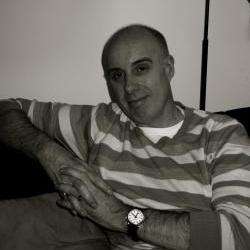So many things are right about Mark Simpson’s new opera Pleasure, receiving its London debut at the Lyric Hammersmith. A co-commission by the Royal Opera House, Aldeburgh Music and Opera North, it was first performed in Leeds and has been on a short tour before finishing its run with these performances in the capital. The setting is a gay nightclub in Liverpool which, as its theme is loss, physical abuse and the tragic lost opportunities of a middle aged woman, seemed somewhat random. As a motherly toilet attendant, Val’s fate is woven in with the gay characters in a slightly mechanical way. Nevertheless the music, production and performances projected the emotional weight that the composer and librettist were clearly aiming for.
The production set backstage in the toilets, an alley and a dressing room of the club, was compactly designed by Leslie Travers. The ever-changing colours of Malcolm Rippeth's rainbow neon lighting created the atmosphere for the sharply varying moods of the piece. Tim Albery’s direction was clear and uncluttered, with the four characters interacting naturalistically throughout.
All four of the soloists were first rate, with Lesley Garrett's downtrodden Val a revelation. Her diction and vocal projection were excellent and she brought to the performance genuine emotion and pathos. Steven Page, as drag queen Anna Fewmore, also gave a strong performance and, although his character was less sympathetic and convincing, he was excellent in the showstopper arias that punctuated the backstage drama that was developing. Timothy Nelson, as Val’s estranged son, was strong and moving before his tragic suicide. Nick Pritchard was vocally impressive and acted well in the underdeveloped role of Matthew.
The only flaws in the piece, however, all spring from the libretto written by poet Melanie Challenger. The words these very ordinary people sang are so heightened and poetical, beautiful for the most part in themselves, that they are totally at odds with the gritty reality of the setting, with the result of undermining the characterisation. This might have been preferable to the awkward attempts to imitate actual dialects and real speech, as Tippett rather ham-fistedly did in several of his operas, but the result still came across as rather patronising.
Simpson’s music was the star of the show, finding ways to rise above the drawbacks of the libretto, with a score so full of riches that it is impossible to list them all. Firstly though, his grateful vocal lines are beautifully written, challenging the singers in all the right ways to emphasise the drama. There was a wealth of memorable melodic material that never strayed into ‘musicals’ territory, even in the drag queen's torch songs. His small scale ensembles of ten players, the talented Psappha conducted by Nicholas Kok, were given material of infinite variety and subtlety. Every nuance of the drama was heightened by the accompaniment and never distracted us from it.
Much credit must go to Mark Simpson for pulling off such a refreshing operatic experience that, even with the libretto's flaws, it proved to be a considerable achievement. It bodes well for any future operatic projects that will undoubtedly come his way.




